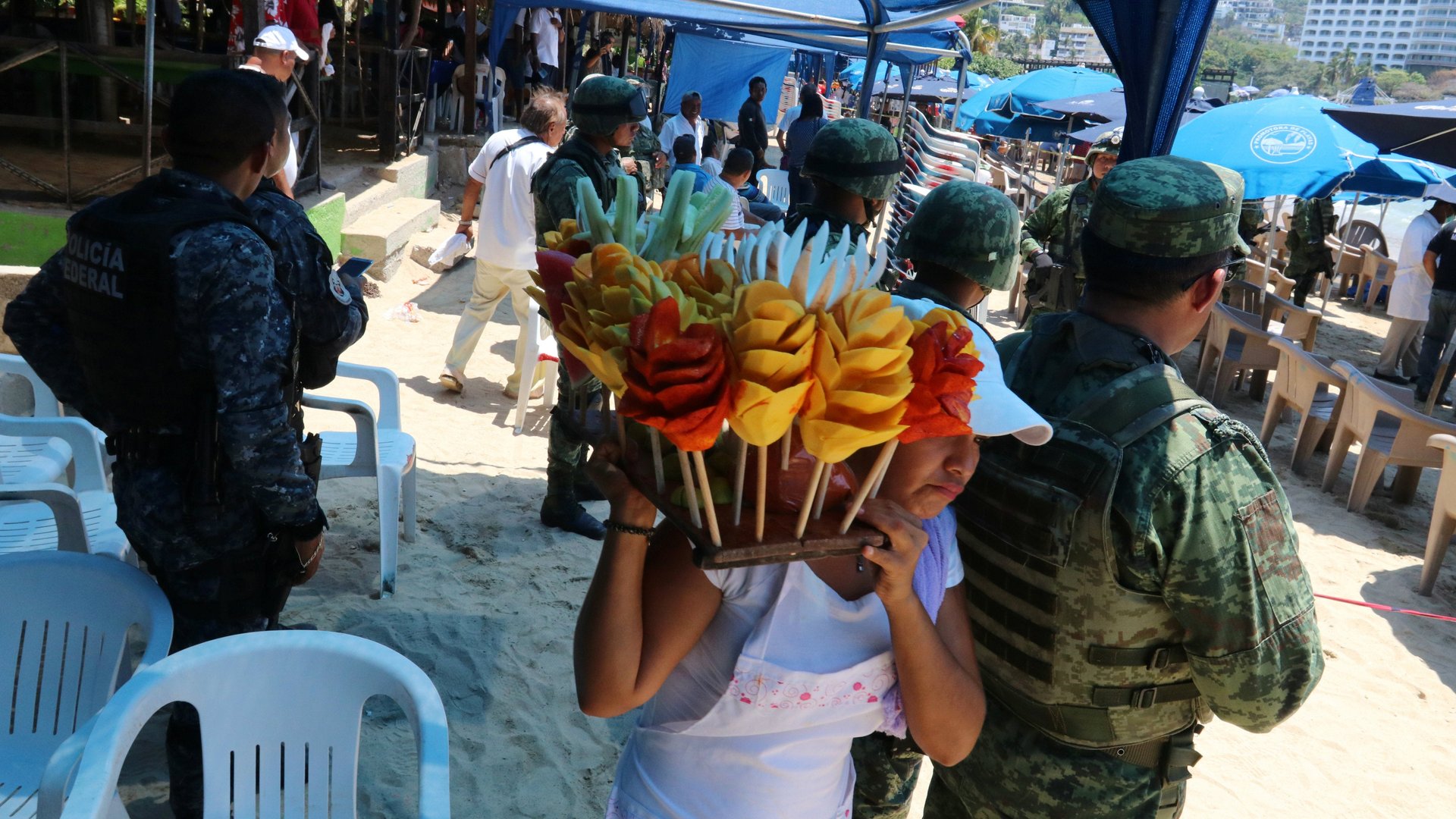The tourism industry thrives off of travelers’ indifference
Afghanistan, Iran, Iraq, Syria, and North Korea all have something in common with the Mexican state of Guerrero: They’ve all been given a level four categorization by the US State Department. In other words: “Do not travel.“


Afghanistan, Iran, Iraq, Syria, and North Korea all have something in common with the Mexican state of Guerrero: They’ve all been given a level four categorization by the US State Department. In other words: “Do not travel.“
But the state of Guerrero is perhaps the only one of those level-four destinations that, at present, has a fully functioning tourism industry. And yet Acapulco, the beach resort town set on Guerrero’s Pacific Coast, is experiencing a spurt of violence that is hard to conceal. Earlier in April, a body washed up on Caletilla Beach, and numerous people have died in multiple shoot-outs since the start of the year.
Other tourist hotspots in Mexico—including Cancun and Playa Del Carmen in the state of Quintana Roo and Los Cabos in Baja California Sur—are experiencing similar upticks in killings, though they have not yet been elevated to Level 4 by the State Department. Cancun recently saw 14 killings reported in a period of just 36 hours and a shooting last week occurred in the heart of its hotel-lined tourist zone. Los Cabos earned the dubious distinction of being the most violent city in the world in 2017, according to Mexico’s Citizens’ Council for Public Security.
Mexico’s precipitous uptick in homicides has been driven in part by territorial disputes among its notorious drug cartels. According to reporting by the Washington Post, an increased demand for drugs coming from the US has also exacerbated tensions amongst the cartels. While tourists are not often the target of the killings, experts say visitors who attempt to buy drugs during their visit can put themselves at risk. And yet, according to Guerrero’s government figures (as reported by The Telegraph), bookings have not declined in the state, but rather increased.
Indeed a statement provided to media outlets by Mexico’s Tourism Board seemed to suggest that travelers needn’t worry.
“While Mexico faces challenges with crime and violence, like many countries around the world today, the overwhelming majority of those incidents are related to Mexican individuals,” the Mexico Tourism Board said. “In the very rare recent cases where foreigners have been impacted, the majority of the cases found that those individuals were involved in suspicious or criminal activity not associated with tourism.”
So should travelers feel at ease? Like most ethical questions associated with travel, there are few clear answers here. Vacationing in a country in the midst of a political crisis or conflict can feel callous and indifferent. But at the same time, if tourists refused to vacation in a place Mexico, a vital part of the nation’s economy would be threatened and no shortage of jobs lost. This, in turn, could likely boost the rates of poverty and unemployment that allow crime to thrive in the first place.
But statements like the tourism board’s seem to point to an uncomfortable truth about travel in general: Different rules of risk apply to different people. One person’s nightmare is another person’s beach vacation—and the industry relies on travelers’ indifference to survive.